Voters to decide fate of legalized sports betting in California, the market's 'crown jewel'
Publish Date:2022/4/7 8:23California is not the final holdout among states deciding whether to legalize sports betting — but it is by far the largest, and a high-stakes battle to pass some form of legalized sports wagering is underway.
Thirty-three states have legalized sports betting since the U.S. Supreme Court’s 2018 decision that opened the floodgates nationwide for an industry once confined to Nevada. The sports betting market, particularly for online betting, isprojected to continue growing throughout the next decade.
Enter California: The nation’s most populous state has yet to legalize any form of sports betting, but that could change in November, when at least two initiatives — and potentially more — are poised to be on the ballot.
Gaming officials across the U.S. have their sights on California, given its outsized potential to add to the burgeoning market: If both online and in-person sports gambling are legalized, the state's voters could open up an in-state market worth more than $3 billion in annual revenue, according to Chris Grove, an industry analyst and partner with Eilers & Krejcik Gaming.
“California would be, by any measure, the crown jewel of the legal sports betting market in the United States,” Grove said.
A pair of competing ballot initiatives — one sponsored by a coalition of California tribes, and another receiving support from many big-city mayors, along with several out-of-state companies — have emerged as the likeliest to get on the ballot in November.
The first, which has already gained enough signatures to be on the ballot, comes from a coalition of more than 40 California tribes, and would legalize in-person sports betting on tribal lands, as well as four authorized racetracks.
The coalition's members, such as the Agua Caliente Band of Cahuilla Indians and the Barona Band of Mission Indians, have poured in $22.5 million since early February to support the measure, which does not address the question of online sports betting.
Agua Caliente tribal chairman Reid Milanovich, who just began his first term as chairman, told The Desert Sun that the in-person tribal measure is "the most responsible approach to authorizing sports betting in California."
"All bets must be placed in-person at well-regulated establishments where safeguards are in place to prevent underage and illegal gambling," Milanovich said. "Our measure also will help create more jobs and economic opportunities that support local communities and Indian self-reliance by generating tens of millions of dollars each year in new revenues for public schools, wildfire prevention and other state priorities."
The tribal coalition is fiercely opposed to a competing ballot measure, which would legalize online sports betting across California.
The online proposal, which already has $100 million in support from companies such as DraftKings, FanDuel and BetMGM, has been pitched by its backers as a way to address homelessness in California: 85% of the tax revenue from the measure would go to a state budget fund devoted to housing and mental health programs.
“Ours is the only sports betting ballot measure that will fund hundreds of millions of dollars in solutions to homelessness and mental health every year,” said Nathan Click, a spokesperson for the initiative.
“Obviously, it's really hard in a state like California to raise taxes, and all of that ongoing money is already accounted for,” he added. “This creates a new revenue source for the state, one that 21 other states are using, to help solve our biggest challenge.”
Grove, the gaming analyst, noted while the online initiative's approach is "relatively unique" for sports betting, many states have taken similar approaches with their state lotteries, including in California.
"Many state lotteries were founded with the explicit goal of funding a specific thing, typically education," Grove said.
Unlike the tribal initiative, the online sports betting measure has yet to qualify for the November ballot, though it’s on track to do so by its May deadline. Click said its backers are “very confident” it will be on the ballot.
Current estimates on how much state tax revenue could come from the measures are broad, with the in-person tribal initiative potentially creating "tens of millions of dollars annually," while the online sports betting proposal could generate "the mid-hundreds of millions of dollars annually," according to legislative analyst projections.
Two other ballot measures to legalize some form of sports betting face uncertain futures. One measure backed by licensed gambling establishments, such as card rooms, does not appear on track to qualify. The other, which would legalize in-person sports betting on tribal lands and online sports betting with tribal oversight, faces a June deadline to qualify for the ballot.
Tribes ramp up campaign against online measure
While more than six months remain until California voters will head to the polls in the general election, tribal officials have already come out strongly opposed to the online gambling proposal, launching a series of TV ads urging voters to opposed
“California voters beware: A ballot measure is being promoted by out-of-state gambling corporations that would authorize a massive expansion of online sports gambling in California, turning every cellphone, laptop, tablet, and even video game console into a gambling device,” a voiceover in the ad says, warning the measure could lead to “more addiction, financial ruin, and homelessness.”
The ad is not the only one hitting the airwaves in opposition to the online proposal. In mid-March, a group of tribes, including the San Manuel Band of Mission Indians, the Rincon Band of Luisueño Indians and the Wilton Rancheria tribe, launched TV advertisements arguing the online measure would “break the promise” between California and tribes set in place by compacts in the late 1990s. The group has indicated it will to commit $100 million to defeat the online sports betting proposal.
The reason for the tribes' mobilization against the online measure is clear. Online sports betting accounts for between 85% and 90% of the total market in states where it’s legal, according to John Holden, an assistant business professor at Oklahoma State University who has done extensive research on sports gambling.
“If those are the two options that pass, and there isn’t some way for the tribes to get access to mobile, that's not going to be the desirable situation for them,” Holden said. “As more and more states legalize online casinos, which only a handful have done so far, I think we're going to see decreases in people going to the physical casinos, and I think that's the big concern for the tribes here.”
While the tribes have already rolled out a public campaign opposing the measure, the public messaging will likely increase come fall. Kathy Fairbanks, a spokesperson for the tribal in-person initiative, said the group’s voter education efforts should “really start to ramp up” then.
“We will be communicating with voters in every way possible — TV, radio, direct mail, digital ads, all of it,” Fairbanks said.
Both measures could theoretically pass, and it’s unlikely Californians will see many ads from promoters of the online betting initiative criticizing the tribal initiative.
“We're just focused on our (online sports betting) measure,” Click said. “We think it provides the best solution for the state.”
However, the tribal measure is facing opposition from another group, called Taxpayers Against Special Interest Monopolies, which includes a lengthy list of cities and local officials, as well as cardrooms. The California Contract Cities Association, which includes 74 municipalities, among them Beverly Hills, Coachella and Malibu, is a part of the opposition group.
The group argues the tribal measure would force the state's 86 cardrooms out of business, placing thousands of jobs at risks and putting a dent in local governments' revenue streams. The opposition group has accrued a substantial war chest to launch attacks again the tribal measure, with roughly $23.5 million in cash on hand at the end of 2021.
"During the pandemic, California cities that depend on the revenues generated through legal gaming at cardrooms have seen the devastating impacts cardroom closures have had on municipal budgets and the vital services they fund," said Commerce Mayor Leonard Mendoza. "Hundreds of millions of dollars in local revenues are on the line, money needed to invest in the safety and well-being of our residents."
The campaigns in opposition and in support of the varying measure underscore the complex dynamics of gambling in California, according to Grove, the gaming analyst.
"Optimal for the tribes is very different from optimal for the card clubs," Grove said. "There are more competing stakeholder visions for sports betting in California than in any other state in the U.S., and it's not even close."
Voters have mixed feelings on sports betting proposals
As the campaigns prepare to ramp up outreach to voters in the coming months, it’s unclear whether Californians will be willing to legalizing sports betting in the state, though initial polling shows an openness to the proposals.
A recent poll found voters had mixed opinions on legalizing sports betting, with 45% inclined to vote for expansion, 33% inclined to vote against it and nearly a quarter of voters undecided.
The poll, conducted by the UC-Berkeley Institute of Governmental Studies, also found opinions on sports betting were directly tied to the respondents’ interest in pro sports: Voters with high interest in pro sports were supportive by a nearly three-to-one margin, while just a third of those with no interest in pro sports supported legalization.
The opinions didn’t vary much when looking at party registration, with about four in 10 of both Republicans and Democrats in support of legalized sports betting.
“It is rare these days for a political issue to not be seen as partisan. But legalized sports betting in California appears to be one of them, at least for the time being,” said Eric Schickler, the institute’s co-director.
At the Agua Caliente Resort Casino and Spa Rancho Mirage, some potential voters were still making their minds up. Local resident Jeff Land, who recently heard about the initiatives through a radio ad, questioned whether the revenue raised for homelessness by the online betting measure would “go to the right place.”
“I could be in favor of both, but if they can show exactly where that money (for homelessness project) goes to and prove it, I would probably favor the online one, because the homeless problem is really big,” Land said, speaking just outside the 360 Sports bar in the casino’s back corner.
“Then, you get to the problem of the people who are taking the money and doing something with it — Are they doing the right thing?” he added.
Others were also open to legalizing sports betting, though the proposals' details could determine their support. Lisset Fernandez, who was visiting the casino from Santa Monica, said she was fine with people placing bets on sports — “It’s their money,” she said — but she was hesitant to pass an initiative with the revenue already earmarked.
“I would go (for the tribal initiative) – they can do whatever they want,” Fernandez said. “The online one, I would be against it, because nobody gets to decide where my money goes. But I would like overall for people to be able to sports bet online, just not under those circumstances.”
“Why should they decide that it’s just for homelessness? It’s a serious problem, but we have other problems also,” she added. “It’s about them telling me where the money goes.”
While both could pass, the competing initiatives could also cancel each other out, with voters torn on which to support and ultimately backing none of them, said Holden, the gambling expert from OSU.
“I think it’s a very possible that effectively these campaigns, they just cannibalize each other, and nothing ends up passing,” Holden said. “I think that's a very real possibility, in which case we could be back doing this in 2024.”


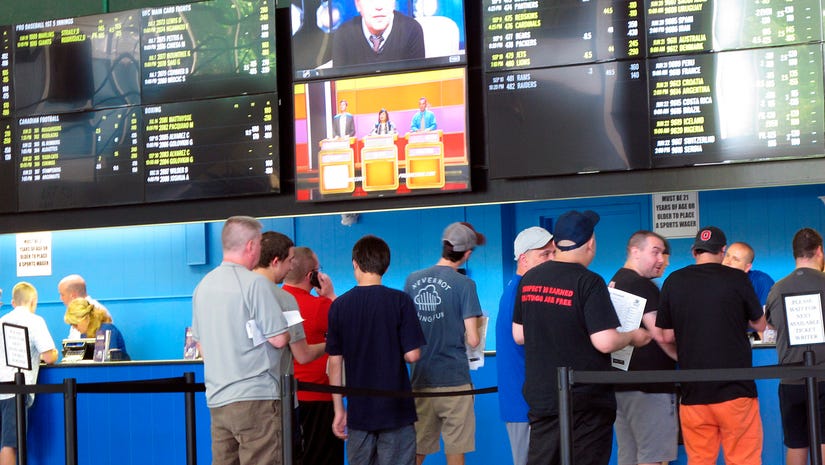
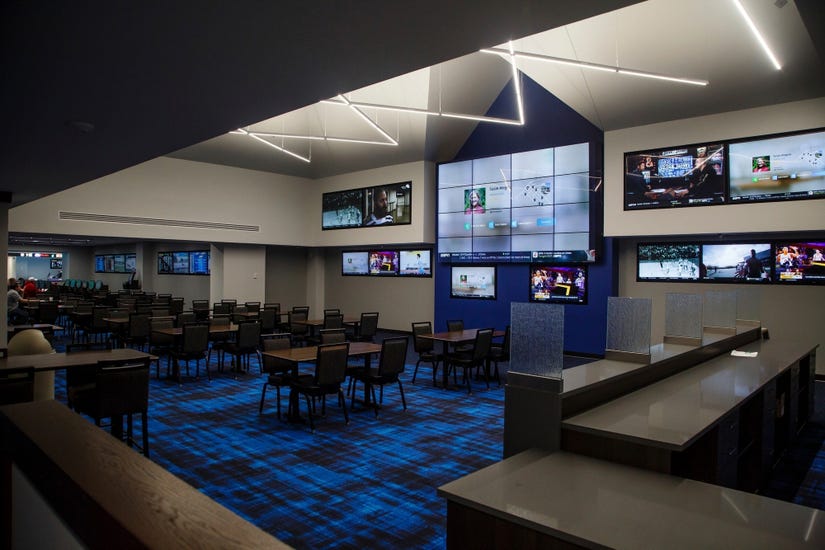
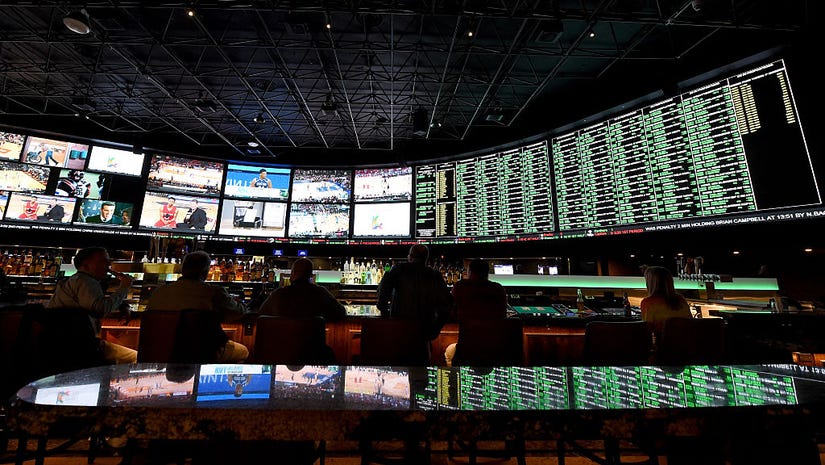
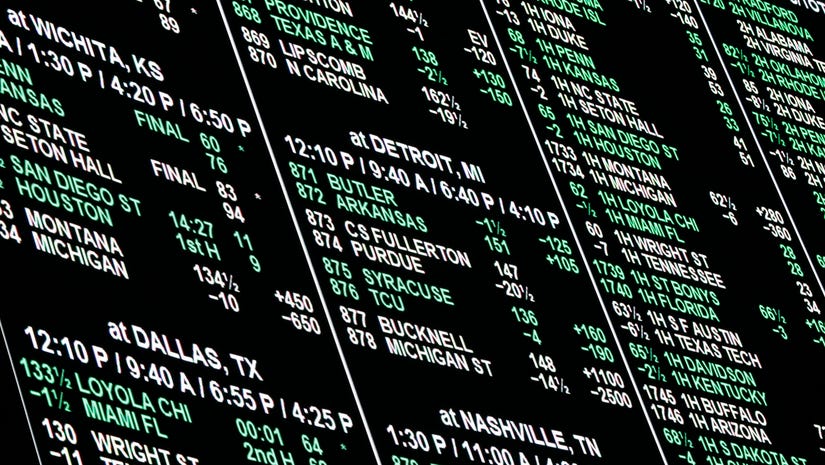
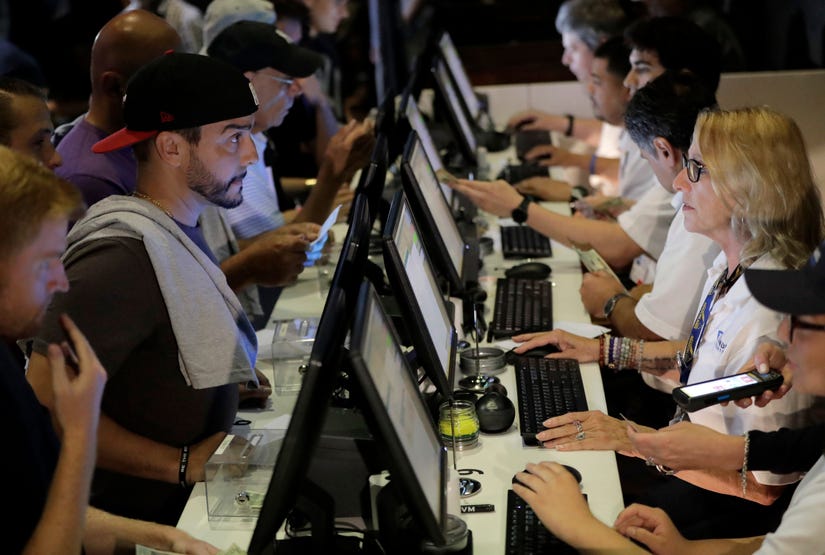
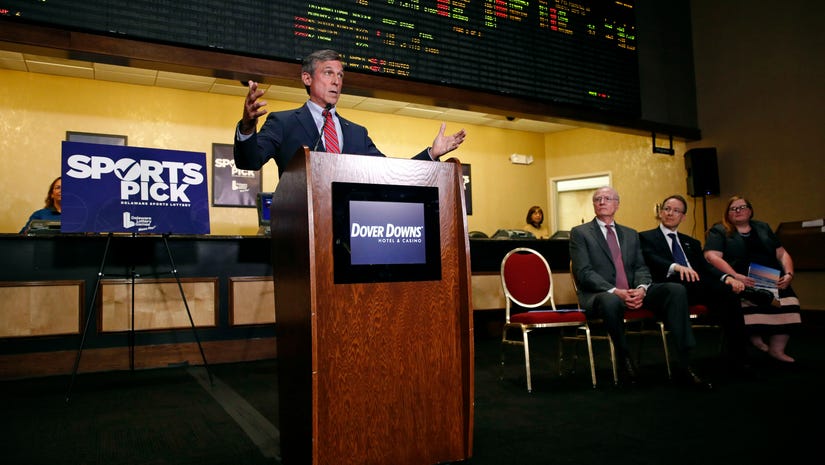

Article comments
Add a new comment